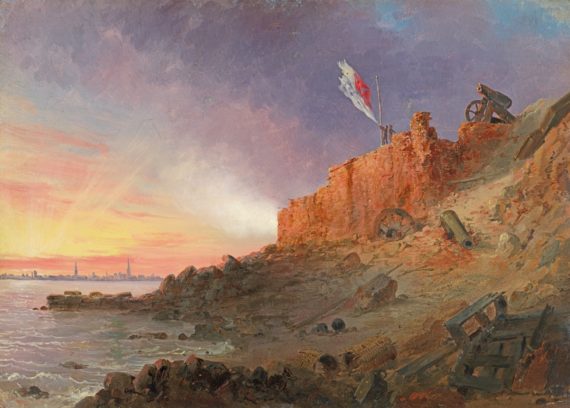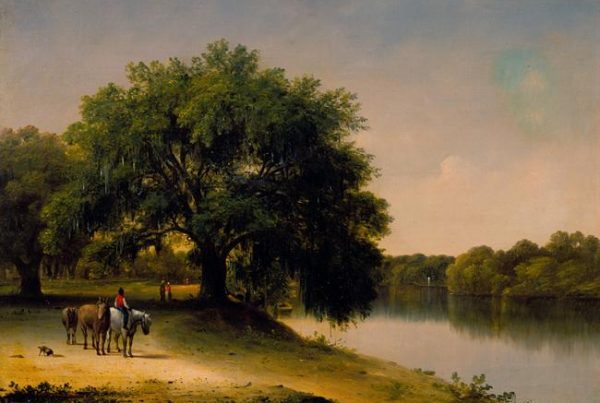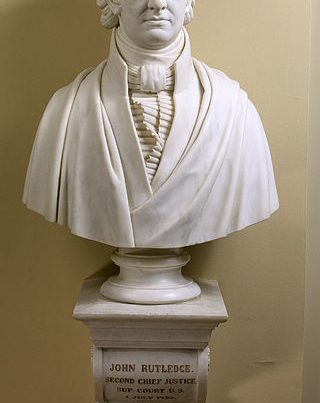Published in 2016, the book Our Man in Charleston tells the story of Robert Bunch (1820-1881), the British consul in Charleston, South Carolina, who is described in the subtitle as “Britain’s Secret Agent.”Bunch was not, for the most part, a secret agent, but he did somewhat covertly keep his government informed about conditions and developments in South Carolina. In correspondence with British authorities, he offered his opinions and observations about the Palmetto State and the South at large during the developing sectional crisis in the 1850s and into the war years, until he was removed from his post in 1863. Bunch, a fervent abolitionist, was convinced that the South desired to reopen the international slave trade, and used this argument in an attempt to influence the British government against formal recognition of the Confederate States of America. Although the Confederate constitution, in Article I, Section 9, Clause 1, expressly prohibited the international slave trade, the anti-Southern Bunch believed and reported this prohibition to be “legally ephemeral” and even “unenforceable.” However, the constitution of the Confederate States of America expressly delegated this power of prohibition to the Confederate government, not the states, and the document emphasized that the Confederate Congress was required to pass laws preventing the foreign trade.
Unlike Robert Bunch, his vice consul Henry Pinckney Walker was pro-Southern. Walker, who is only briefly mentioned in the book, would have welcomed British recognition of the Confederate States. Walker was the acting British Consul in Charleston in the late 1850s, and was appointed Vice Consul on May 12, 1860, and again served as the acting consul from 1863 until August 12, 1865, when he was appointed Consul for the states of North and South Carolina. He had been born and raised in England, but his mother was from South Carolina, and his sympathies were with her state and the South. He exulted when South Carolina seceded from the United States:
“The glorious union! The model republic, is at an end. The people of the North, for fifty years past, have amused themselves at the expense of the Southerners. They have sneered at them and traduced them without measure, and while they have grown rich and over-insolent they have been feeding upon Southern industry, and all their prosperity is traceable to Southern industry and products. Millions upon millions have the South unjustly paid under the Northern protective tariff system. With secession this tribute payment ceases. There is no wonder that the Northerners are union men, and denounce the impropriety of secession. It occasions them pecuniary loss.”
Some of Walker’s views were echoed by his fellow Englishman Charles Dickens, who declared in his magazine All the Year Round in December 1861: “Union means so many millions a year lost to the South; secession means the loss of the same millions to the North … the quarrel between North and South is, as it stands, solely a fiscal quarrel.” Dickens later wrote to a friend in March 1862: “I take the facts of the American quarrel to stand thus. Slavery has in reality nothing on earth to do with it, in any kind of association with any generous or chivalrous sentiment on the part of the North. But the North having gradually got to itself the making of the laws and the settlement of the tariffs, and having taxed the South most abominably for its own advantage, began to see, as the country grew, that unless it advocated the laying down of a geographical line beyond which slavery should not extend, the South would necessarily recover its old political power, and be able to help itself a little in the adjustment of the commercial affairs. Every reasonable creature may know, if willing, that the North hates the Negro, and until it was convenient to make a pretense that sympathy with him was the cause of the War, it hated the Abolitionists and derided them up hill and down dale.” In the same letter, Dickens also contended that it was “distinctly proveable” that secession was not treason.[1]
Henry Pinckney Walker’s papers are full of interesting and revealing letters, one of which, written to his sister in England, explained why he believed some Englishmen viewed the American South, and the newly independent South Carolina, unfavorably. His fellow countrymen, he maintained, were being “grossly misled” by writings in British publications reprinted from Northern newspapers and journals. Walker’s letter went on:
“When I was in England 10 years ago I was commissioned by the editor of the Charleston Mercury to negotiate for an exchange with editors of London papers. The answer I got was ‘We have no need of Charleston papers…’ And so they have gone on to the present time … We find it very hard to read a Northern paper without a smile on account of the very preposterous lies they circulate, and the London press generally reprints them all. Hardly a week has transpired this winter but what something has been shown by the New York press to have been committed by a Southern mob or a Charleston mob … As to such a thing as a mob I have seen such things in England and I have often read accounts of them and their doings in the northern cities and Canada. But upon my soul, I have never seen the first germ of one in Charleston, the most peaceful, conservative, order-loving place in creation.”
Walker wrote about this problem in January 1861, several months before the war began. Later that year, an effort was made to correct the situation by Ambrose Dudley Mann, an experienced diplomat whom President Jefferson Davis had appointed as one of the Confederate commissioners to Europe. In the introduction to the published correspondence between Davis and Mann, the editor described Mann’s efforts to supply Europeans with news from the Southern viewpoint:
“Mann, aware of the importance of favorable publicity, sought on his own initiative to provide the European public with satisfactory intelligence about events affecting the South. Accordingly, prior to August 3 [1861], he worked out an arrangement with Reuter Telegraph and News Agency whereby dispatches would be sent via Cunard packets to Queenstown, Ireland or to Southampton and from there telegraphed to London. In consequence, Europeans were thereafter generally better and more promptly informed about the Southern side of the conflict.”[2]
Despite the news and propaganda that Northern newspapers were providing for European news outlets, many if not most Englishmen were sympathetic to the Southern cause, and some felt that the North had no just reason for its invasion of the South. In an article entitled “American Crisis” that appeared in an 1861 issue of the London Quarterly Review, the writer observed that “It does seem the most monstrous of anomalies that a government founded on the ‘sacred right of insurrection’ should pretend to treat as traitors and rebels six or seven million people who withdrew from the Union, and merely asked to be left alone.”
In his excellent book The Glittering Illusion, Sheldon Vanauken argues that, although the sympathies of the British were largely with the South during the war, their persistent belief that the South could not be defeated kept them from intervening in the conflict, or even offering recognition of the Confederacy. The Times of London, and all England, Vanauken maintained, “were in the grip of the glittering illusion, that Jefferson Davis had made a nation. Without England’s having to risk a single warship, the end—desired as well as expected—of the disintegration of the American colossus and the establishment of a potential ally was virtually a fait accompli.” [3]
In May 1862, Henry Pinckney Walker’s wife Dora wrote to her sister-in-law Nelly in England that “Pinck” (as she called her husband) had “warmly espoused the Southern Cause” and would not run away to England to seek safety. Dora also expressed her admiration for the “chivalrous enthusiasm” of South Carolina’s men. “Young men brought up in the very lap of luxury join everyday as privates, and the hardest labour has been done by the whitest hands,” she wrote to Nelly. “Gentlemen who have magnificent homes and servants at every door, leave wife and children and go to the war.” Later, in February 1863, she wrote to other relations in England, “I never dreamed of living to see heroism, ‘self sacrifice’ and intense love of country so commonly evident as here, and if women could be angels on earth certainly some of our women deserve the name.”
Like many women in the South, Dora worked tirelessly making clothes and accoutrements for the soldiers, and two of her sons served in the Confederate Army—Charles Edward Walker, and Henry Pinckney Walker, Jr., who was called Harry. Charles survived the war, but Harry died of cerebral meningitis on March 12, 1865, near Fayetteville, N.C., where Confederate forces had retreated during their last desperate struggles against General Sherman’s army. On that same date, a fellow Englishman and a fellow Confederate soldier, Captain Henry W. Feilden, wrote to his wife: “One of Mr. Pinckney Walker’s sons died this morning on the line of march of congestion of the brain.”
After the terroristic bombardment of Charleston began in August 1863, Henry Pinckney Walker moved his family to a nearby plantation owned by his relations, but he remained in Charleston. In September 1864, he wrote to his sister Nelly about a close call he experienced one day when a shell hit within eight yards of him, and described how the “Humanitarians on Morris island” (Union artillerists) were sending shells into the residential and business districts to start fires, and then deliberately shelling the volunteer firemen who were trying to put out the conflagrations.
In 1861, Henry Pinckney Walker had renounced his U.S. citizenship, and after the war, although he and his family remained in South Carolina, he did not seek to become a citizen again. In their later years, he and his wife lived in Mount Pleasant, and finally in Summerville, S.C. In the summer of 1890, Henry Pinckney Walker traveled to New York seeking medical treatment for his health problems, and died there on August 24. An obituary printed in a Charleston newspaper paid him this tribute: “He was a man of fine education, both in his profession and polite literature. He never lost his individuality as an Englishman. He was a thorough gentleman in every way of life, and a most interesting talker on all current subjects. His death will be regretted by thousands of friends in Charleston, who he attached to himself in a long, prosperous and honorable career as lawyer and consul.”
[1] Storey, Graham. The Letters of Charles Dickens, vol. 10, p. 53-54.
[2] Moore, John Preston, ed. My Ever Dearest Friend: The Letters of A. Dudley Mann to Jefferson Davis, 1869-1889, p. 17.
[3] Vanauken, The Glittering Illusion, 133. Vanauken contended that England saw the South as aristocratic and thoroughly English, especially Virginia and the Carolinas.







